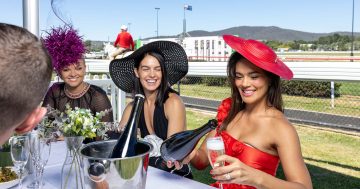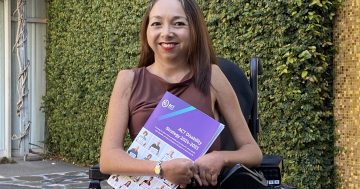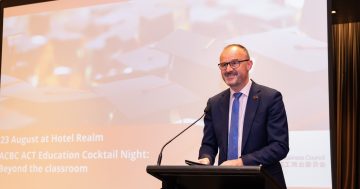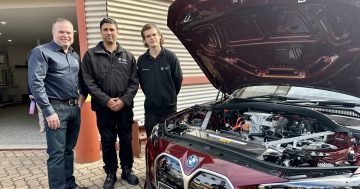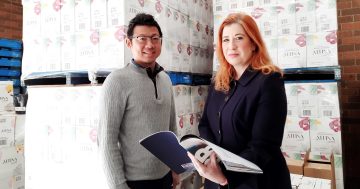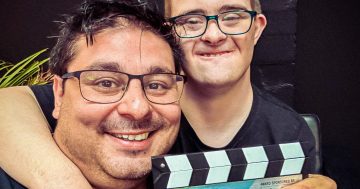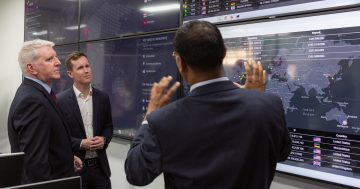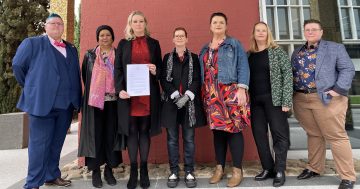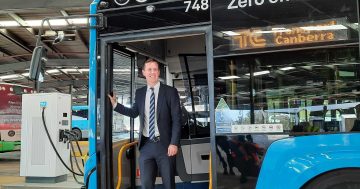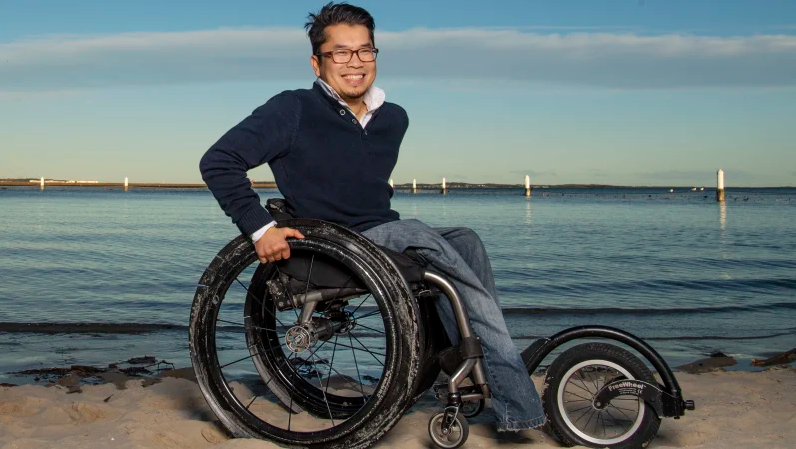
Huy Nguyen, a Canberra humanitarian engineer who launched the global startup Enabler Interactive. Photos: Supplied.
Huy Nguyen graduated as an engineer from the Australian National University in 2014. In the same year became Canberra’s Young Australian of the Year.
Huy calls himself a ‘humanitarian engineer’, working to find solutions for people with a disability by using his engineering skills, innovative technology and a personal passion for change to find technological solutions to barriers faced by people with a disability all around the world.
It was Huy’s work in developing countries, learning about barriers for people with a disability, both technological and cultural, which drove him to work closely with ANU engineering students to develop assistive technology for people with a disability. But he says the real barriers weren’t necessarily technological, they were cultural and attitudinal.
“I realised that it’s not just about creating assistive technology to enable people with a disability to function in the same way as the rest of the human race, but creating awareness and acceptance in communities to enable people with a disability to be included in every facet of living,” he says.
So Huy began to change focus, to solve the attitudinal problem, applying the social model of disability to ensure accessibility and acceptance for people with a disability, in developing countries and also in Australia.
“While I was doing a lot of international development work,” he says, “I spent time in challenging environments and challenging countries engaging with people with a disability, trying to understand the challenges they face. And I realised that if we don’t do something about knowledge, and training, there’s no amount of assistive technology that will help a person with a disability get a job, or be able to access a building which has stairs.”
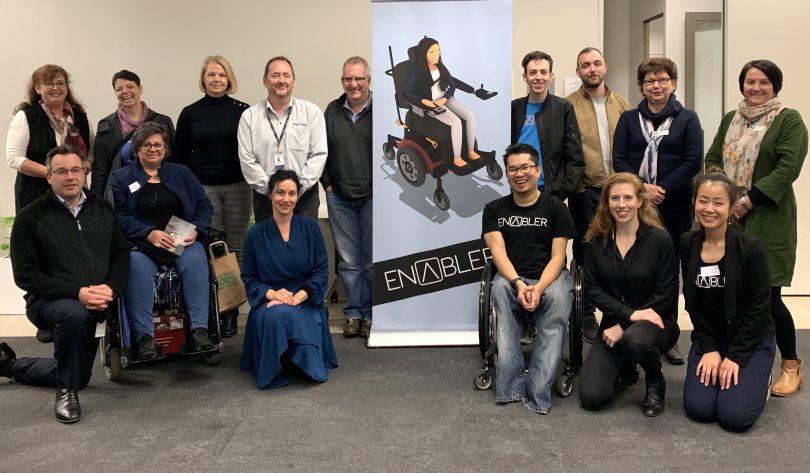
Enabler Interactive uses role-playing in a 3D simulated world to train organisations and individuals in disability awareness.
Enabler Interactive is staffed by people with lived experience of disability, and all are able to communicate and educate others about disability. Huy contracted polio as an infant and believes his own experience with a disability gives him a unique mindset when approaching real-world social challenges.
“I see that disability services need to move beyond charity models and operate as businesses to drive change,” he says.
“Recognising the great need for more skilled disability support workers for people with a disability, I established the social enterprise Enabler Interactive, which uses video game technology to create portable, scenario-based training for disability and aged care workers.
“We wanted to make it fun, but also a safe space to make mistakes, without causing humiliation or embarrassment to a real person with a disability,” he says.
Enabler Interactive’s talented developers have expanded their online training programs, which are similar to the online game ‘Second Life’. Using a mouse, users are able to walk around and explore an environment, and meet people with a disability in a virtual world, ask questions and learn about different disabilities, and make mistakes in answering questions or asking questions without causing pain to a real human being.
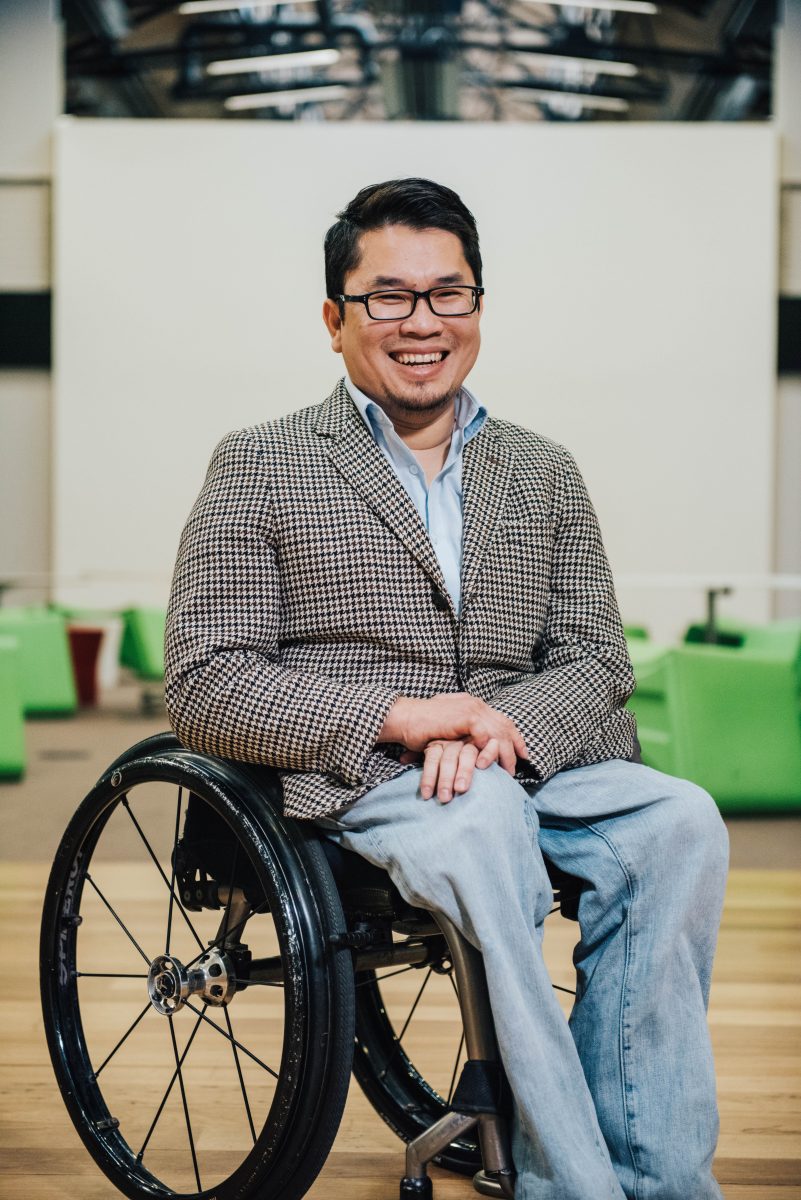
Huy is modest about his many awards and accolades, his most recent being awarded a Myer Fellowship in 2018.
The company has now expanded from Canberra to Melbourne and Singapore, where they are using the online role-play game to educate not only about disability but of huge concern to the Singaporean government, aged care. From a humble start with one module on disability awareness, they have expanded their online role-play training to manual handling, aged care and the health care sector where their training provides clinical support.
Huy’s record of achievement is impressive, but he is modest about the accolades.
He was named a Myer Innovation Fellow in 2018, which has helped him launch his Canberra startup onto the world stage.
Visit Enabler Interactive to learn more about their technology and projects, and try a free tutorial on the platform.











